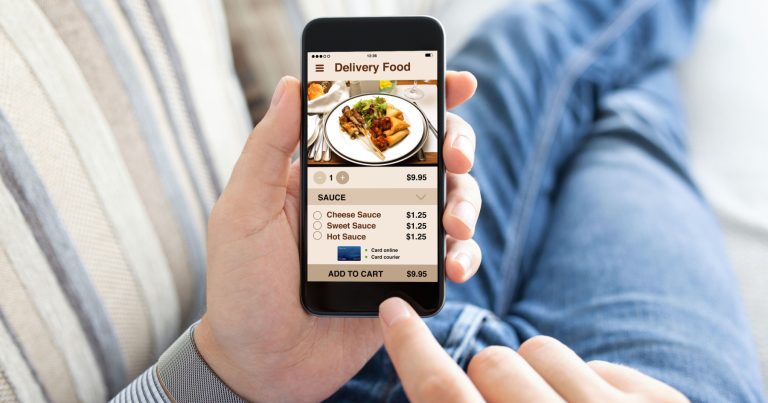
Focus group participants discussed the need for mobile applications to match customer desires. | Image: Shutterstock
Technology continues to play a major role in college dining, especially as a solution to business problems. But it's more than that. New technology is popping up everywhere and becoming ingrained in college food services. Concepts such as mobile apps are becoming increasingly popular at colleges and universities, and more advanced technology, such as the plant-based robot SavorEat, is also making its debut at colleges.
Both consumer facing and back-end technology are sure to play a role in the future of college dining. But what type of technology specifically addresses the needs of today's food service operations? This was a topic of discussion in the National Association of College and University Food Services (NACUFS) College Dining 2030 and Beyond report.
The research was collected through focus groups consisting of food service leaders at colleges and universities, as well as food service academics, technology experts and facility design professionals. The focus groups were developed with the goal of understanding the issues facing food service providers today. The team has also formed an advisory board that includes food service experts such as Zia Ahmed, senior director of dining services at The Ohio State University and Ken Tong, executive director of dining at the University of Massachusetts.
Here are some takeaways from the technology focus groups.
Mobile applications must match customer needs
The report highlighted the role of mobile applications in access to information as well as demand, but above all, the mobile application needs to align with customer needs as well as mitigate operational challenges. For example, the report suggests apps for ordering ahead, combined with machine learning to forecast demand or using geofencing to forecast food demand. They also discussed the demand for contactless technology.
Contactless technology is becoming more popular through concepts such as automated delivery. Starship Technologies, a supplier of delivery robots, just celebrated five years of service at George Mason University.
When it came to the role of mobile apps in providing information, focus groups discussed personalized marketing to students using features like a dining calculator to balance their diminishing balance.
When it comes to BOH technology, consistency and efficiency are key
One issue discussed by participants regarding technology is its role in reducing food waste. The report noted the need for predictive analytics to identify food intake trends in terms of product and timing. Another challenge that can be addressed through technology is how to capture what has already been removed from the service line.
Some of the technologies on the market that address the food waste problem are BOH tools like Compass Group's Waste Not 2.0 food waste tracker.
The focus group also discussed automation and robotics, particularly in BOH operations. In the work focus group, participants discussed the role of robots in helping solve work challenges.

